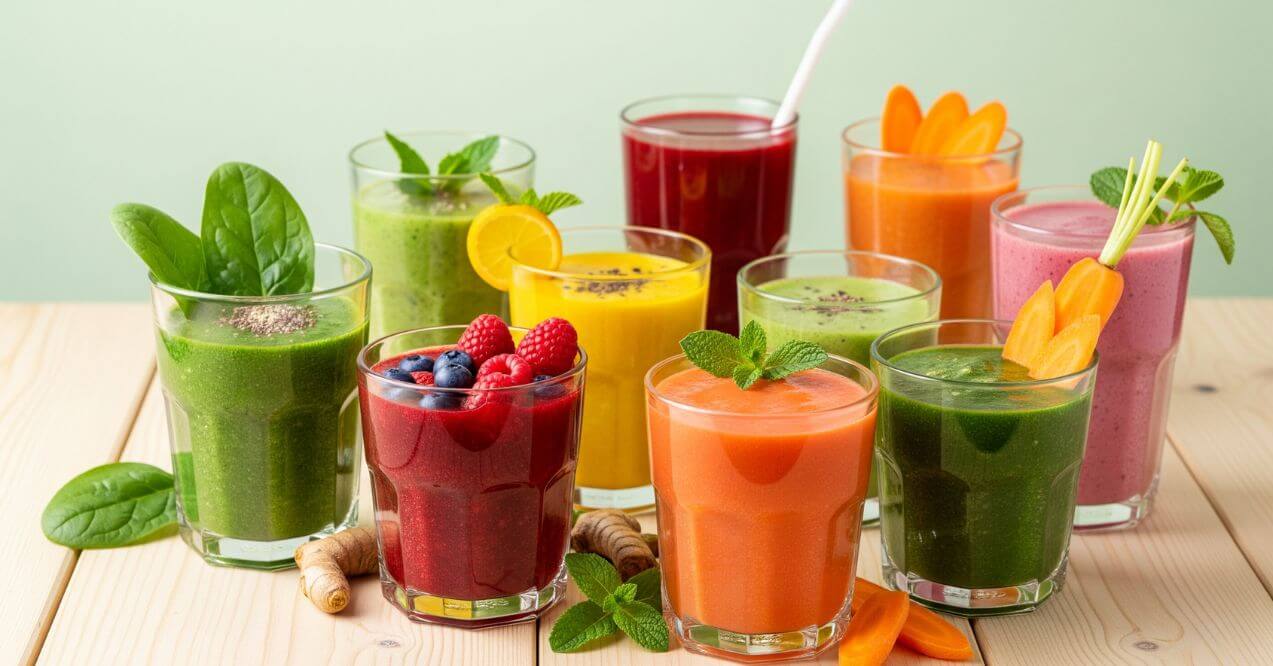5 Mind Salads You Should Add to Your Diet Today
Medically reviewed by our experts


Mind salad recipes combine specific nutrients that may support brain function through their antioxidant properties and healthy fat content. These antioxidant salad combinations provide omega-3 fatty acids, vitamins, and minerals that potentially nourish neural pathways. Each recipe focuses on ingredients studied for their cognitive benefits.
The five salads in this guide offer variety while maintaining nutritional density. They incorporate leafy greens, nuts, fatty fish, and colorful vegetables that research suggests may benefit brain health. Simple preparation methods make these recipes accessible for daily meals.
1. Kale & Walnut Salad
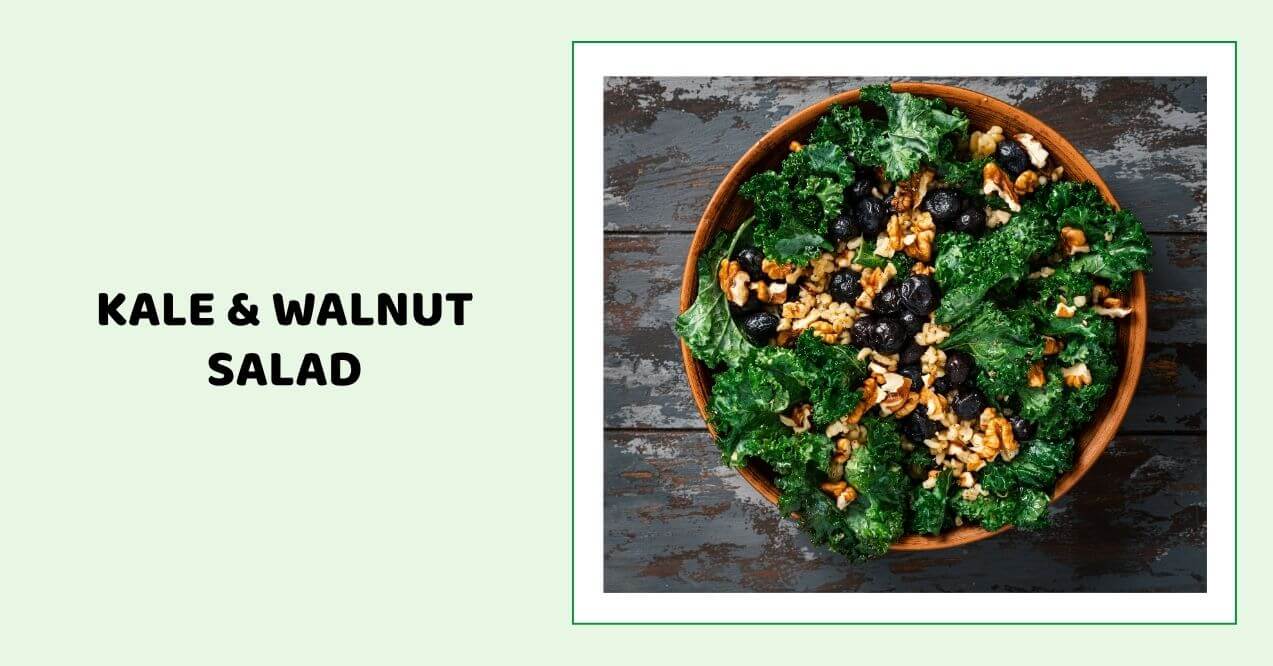
This nutrient-dense salad combines kale’s antioxidants with omega-3 rich walnuts. The benefits of kale salad include its high vitamin K and folate content, which support cognitive function. Hemp seeds add extra protein and healthy fats.
Ingredients:
- 7 cups kale, torn into bite-sized pieces
- 1/3 cup raisins (or dried cranberries)
- 1/2 cup crumbled feta cheese (optional)
- 1 apple, cored and diced
- 1 cup toasted walnut pieces
- 1 tbsp hemp seeds
Dressing Components:
- 3 tbsp olive oil
- 2 tbsp maple syrup
- 1 tbsp apple cider vinegar
- 1 tbsp lemon juice
- 1 garlic clove, minced
- 1/2 tsp sea salt
- 1/8 tsp black pepper
Start by removing tough stems from kale and tearing leaves into manageable pieces. Rinse thoroughly and pat dry. Toast walnuts in a dry pan over medium heat until golden and fragrant.
Combine all dressing ingredients in a jar and shake vigorously. Mix kale with raisins, apple pieces, toasted walnuts, and hemp seeds in a large bowl. Pour dressing over the mixture and toss well to coat every leaf.
The combination provides vitamin E from walnuts and antioxidant compounds from kale that potentially protect brain cells from oxidative damage.
2. Spinach, Salmon, & Avocado Salad
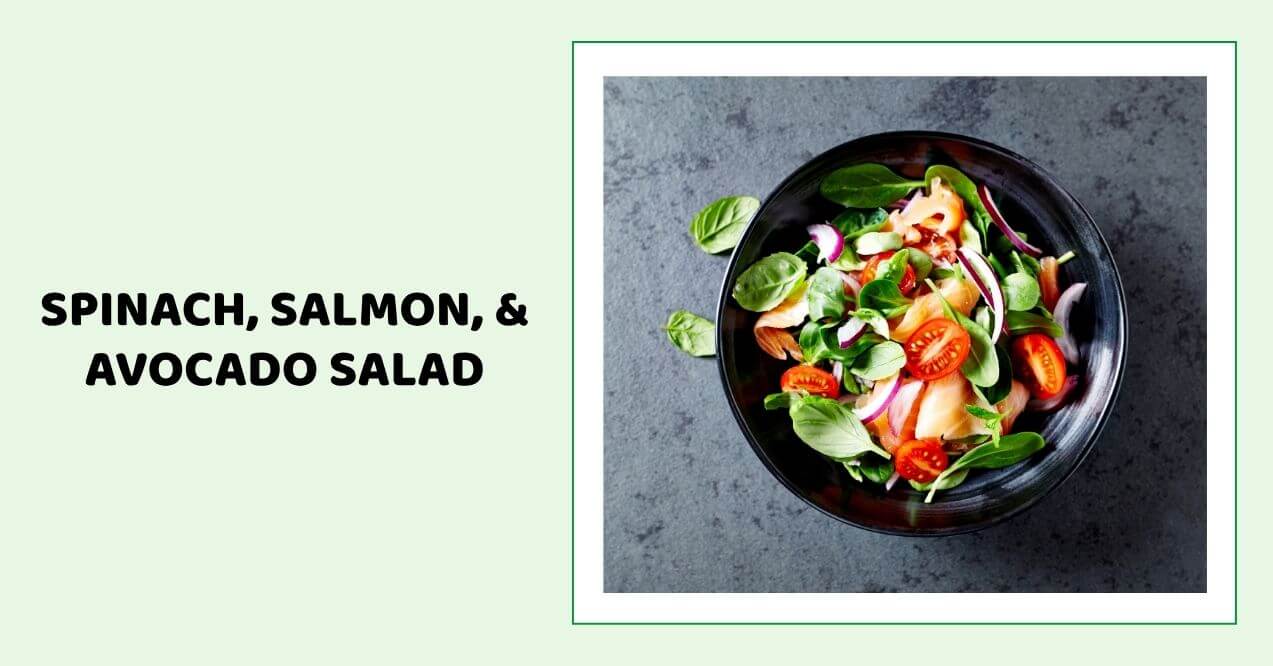
Omega-3 fatty acids from salmon paired with folate-rich spinach create a powerful combination for brain health. This salad delivers essential nutrients in every bite. The healthy fats from avocado may help with nutrient absorption.
Ingredients:
- 3 cups fresh spinach
- 1 can wild-caught salmon (drained and flaked)
- 1 avocado, pitted and diced
- 1/4 cup red onion, thinly sliced
- 1/4 cup cucumber, sliced
- 2 tbsp olive oil
- 1 tbsp apple cider vinegar
- 1 tbsp lemon juice
- Salt and pepper to taste
Place spinach leaves in your serving bowl as the base. Flake the salmon carefully, checking for any remaining bones. Add salmon, avocado chunks, onion slices, and cucumber on top of the spinach bed.
Whisk together olive oil, vinegar, lemon juice, salt, and pepper until well combined. Drizzle the dressing over your salad just before serving. The omega-3s in salmon and monounsaturated fats in avocado work together to potentially support brain cell membrane health.
3. Blueberry & Quinoa Salad
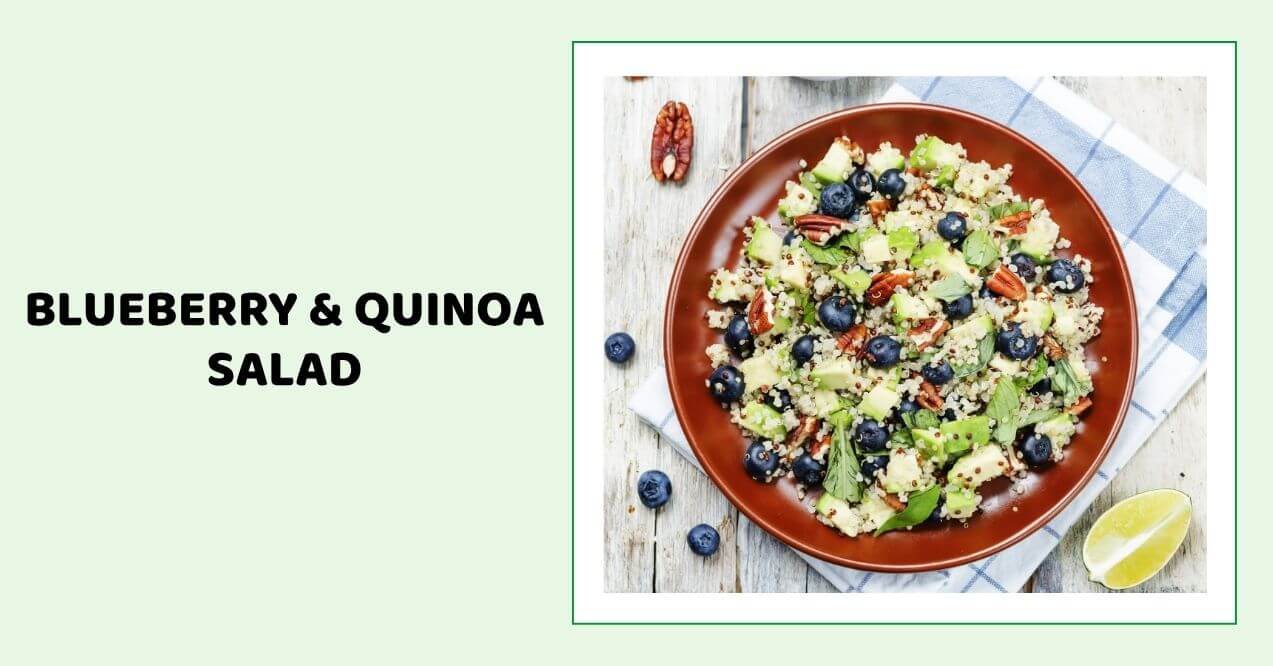
Anthocyanins in blueberries may help protect brain cells from oxidative stress. Quinoa provides complete protein for sustained energy. This combination offers both immediate and long-lasting nutritional benefits.
Core Ingredients:
- 1 cup cooked quinoa (cooled)
- 1 cup blueberries
- 1/2 cup sliced almonds
- 1/4 cup pumpkin seeds
- 1 tbsp chia seeds
- 2 tbsp fresh mint, chopped
Simple Dressing:
- 2 tbsp olive oil
- 1 tbsp honey
- 1 tbsp lemon juice
- Salt and pepper to taste
Mix cooled quinoa with fresh blueberries in a serving bowl. Add almonds, pumpkin seeds, and chia seeds for extra texture and nutrients. Fold in fresh mint leaves gently.
Create the dressing by whisking olive oil with honey and lemon juice. Season with salt and pepper according to taste. Pour over the salad and toss lightly to preserve the blueberries’ shape.
The magnesium from pumpkin seeds and vitamin E from almonds potentially contribute to healthy brain function alongside the antioxidant-rich blueberries.
4. Mediterranean Chickpea Salad
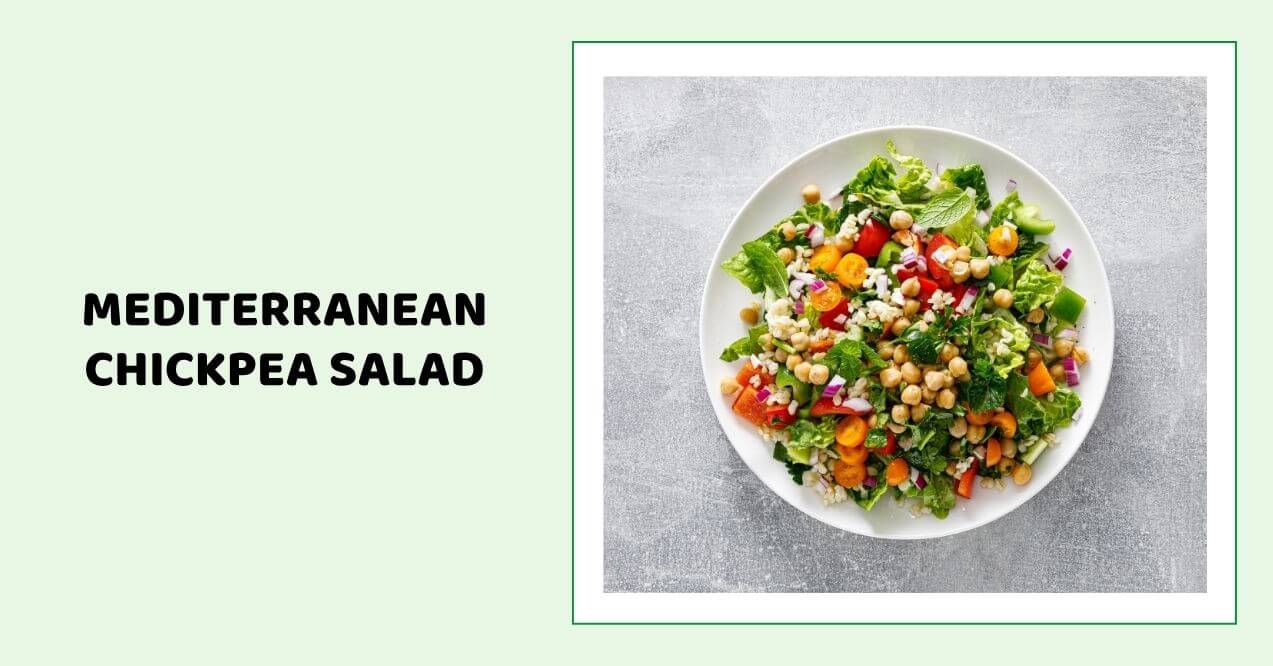
Mediterranean ingredients provide multiple brain-supporting nutrients in this protein-rich salad. Chickpeas offer steady energy while olive oil delivers healthy monounsaturated fats. The combination creates a satisfying meal that may benefit cognitive health.
Ingredients:
- 2 cups canned chickpeas (drained and rinsed)
- 1 cucumber, diced
- 1/2 cup cherry tomatoes, halved
- 1/4 cup red onion, diced
- 1/4 cup kalamata olives, pitted and chopped
- 1/4 cup feta cheese (optional)
- 1 tbsp olive oil
- 1 tbsp lemon juice
- 1 tsp dried oregano
- Salt and pepper to taste
Combine chickpeas with cucumber, tomatoes, onion, and olives in a mixing bowl. The variety of textures makes each bite interesting. Discovering herbs that help with memory can add another dimension to Mediterranean-style dishes.
Dress the salad with olive oil and fresh lemon juice. Sprinkle oregano evenly throughout and season appropriately. Add feta cheese if desired for extra flavor and calcium.
5. Carrot & Ginger Detox Salad

Beta-carotene from carrots converts to vitamin A, supporting cognitive function. Fresh ginger may improve circulation to the brain. This vibrant salad offers both flavor and potential brain benefits.
Mix grated carrots with shredded purple cabbage for a colorful base rich in antioxidants. Fresh cilantro adds flavor while providing additional phytonutrients. The combination creates a refreshing salad with multiple health benefits.
Fresh Ingredients:
- 2 large carrots, peeled and grated
- 1/2 cup purple cabbage, shredded
- 1/4 cup fresh cilantro, chopped
- 1-inch piece of ginger, minced
- 1 tbsp sesame seeds
- 2 tbsp apple cider vinegar
- 1 tbsp honey
- 1 tbsp olive oil
- Salt and pepper to taste
Whisk together vinegar, honey, and olive oil for the dressing. Add minced ginger to infuse its warming properties throughout. The sesame seeds provide healthy fats and a satisfying crunch that complements the vegetables perfectly.
Complementing Your Mind Salad with Brain-Boosting Supplements
Adding brain-supporting supplement powders to these salads may enhance their cognitive benefits. Products containing Bacopa monnieri, Alpha-GPC, and L-Tyrosine can be mixed into dressings or sprinkled on top. These compounds have been studied for their potential effects on memory and focus.
Consider incorporating supplements like CogniCharge into your routine alongside these brain food recipes. The powder format allows easy integration into salad dressings or can be mixed into accompanying beverages. Always consult healthcare providers before starting new supplements, especially if taking other medications.

The combination of nutrient-dense whole foods with targeted supplements potentially provides comprehensive brain support. While avoiding worst foods for memory, focus on incorporating these beneficial ingredients regularly. Consistency in consuming brain-healthy nutrients matters more than perfection in any single meal.
For a more complete nutrition strategy, you can also explore juicing recipes for high blood pressure, which feature heart-healthy fruits and vegetables that support circulation and complement brain-focused nutrition. Pairing these juices with your daily salads can help promote both cognitive and cardiovascular wellness.
Conclusion
These five salads offer delicious ways to incorporate brain healthy recipes into your regular meal rotation. Each mind salad provides unique combinations of antioxidants, omega-3 fatty acids, and essential vitamins that may support cognitive function. Making these nutrient-dense meals part of your weekly routine potentially contributes to long-term brain health.
The key lies in consistency rather than perfection. Choose two or three favorite recipes to start and gradually expand your repertoire. Your brain may benefit from the steady supply of protective nutrients these salads provide over time.
Common mind salad ingredients include leafy greens, fatty fish (like salmon), nuts, seeds, berries, avocados, and colorful vegetables. These foods are selected for their potential to support memory, focus, and overall brain health.
For the best potential benefits, it’s recommended to enjoy a mind salad two to three times per week as part of a balanced, brain-healthy diet. Consistency helps provide a steady supply of nutrients that may support cognitive function over time.
Yes, they can easily fit into various dietary lifestyles, including Mediterranean, pescatarian, vegetarian (with modifications), and anti-inflammatory diets. They focus on whole, nutrient-rich foods that align with most brain-supportive eating patterns.
While a mind salad alone won’t guarantee improved memory or focus, the nutrients it provides—such as antioxidants, omega-3s, and vitamins—are linked to supporting healthy brain function when consumed regularly as part of a healthy lifestyle.
FAQ
References



